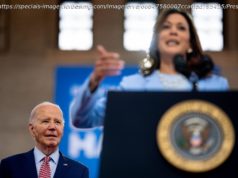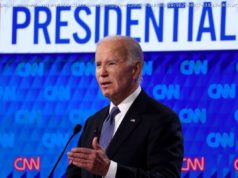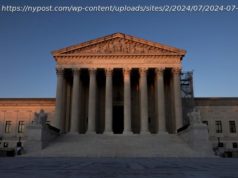Short of an outright constitutional crisis, a lot could still go horribly wrong.
A brazen refusal by the president to leave office is surely a nightmare scenario. But even if President Donald Trump were to lose and accept the results on November 3 or soon thereafter, he could nevertheless wreak significant damage during the period between the election and the inauguration of Joe Biden—endangering the incoming administration, at best, and actively sabotaging it, at worst. Presidential transitions are perilous even in normal times. With each inauguration of a new president every four to eight years, the executive branch undergoes a massive overhaul; more than 4,000 new political appointees flood into federal departments and agencies, including 1,200 senior officials who require Senate confirmation. The minute a new president is sworn in, his administration assumes responsibility for everything from nuclear launch codes to pandemic response, economic policy, and counterterrorism—at the very moment when the government’s capacity is most diminished. At the Defense Department alone, the nation’s largest employer and perhaps the world’s most complex organization, the top 59 senior civilian leaders, from the secretary of defense on down, are political appointees requiring Senate confirmation. A private-sector company would be crazy to emulate this approach, yet the security, the health, and the prosperity of Americans depend on its success. Facilitating the smoothest possible transition—if one should happen in January 2021—is of paramount national importance, particularly at a time of ongoing upheaval at home and abroad. If elected, Joe Biden would face the extraordinary challenge of seizing the reins of government amid the triple crises of a global pandemic, an economic collapse, and a national reckoning over racial justice, and his effectiveness in managing these would redound to the entire nation’s benefit. Yet there is ample reason to worry that the outgoing Trump administration will disregard the laws and the norms that are supposed to govern the transition period. Without question, a stolen election or a refusal to accept electoral results is the nightmare scenario. But well short of a constitutional crisis, the Trump administration can nevertheless hobble the incoming Biden team and endanger the nation with a scuttled transition process. Presidential transitions are both remarkable and risky. Unlike nations with parliamentary systems and wholly professionalized bureaucracies, the U. S. federal government undergoes extensive turnover whenever a new president comes into office with thousands of political appointees in tow. This turnover is important, as it injects fresh blood and ideas into a too-often-sclerotic system and ensures that the daily work of the executive branch aligns with the president’s—and, by extension, the electorate’s—will. That the U. S. has experienced 44 peaceful transitions of power, even as the anti-majoritarian Electoral College has overridden the popular vote in two elections so far this century, is a testament to the strength of the American political system and norms that date back to George Washington. Yet the process is also fraught with danger. Much can get lost in transition: Departing officials take with them crucial knowledge about ongoing policies, budgets, dialogues, and diplomacy—not to mention institutional knowledge about where to find information and how to get things done. Always complex, assuming control of the government grew into an even more Herculean task with the emergence of a enormous national-security bureaucracy after World War II and its further expansion after 9/11. Perhaps the most famous fiasco during this vulnerable moment is the April 1961 Bay of Pigs invasion, which failed in large part because of information lost between the departing Eisenhower administration and the incoming Kennedy administration, but there are many other examples of miscommunications and missteps in the national-security realm, such as when the outgoing Carter team failed to alert Reagan of Israel’s impending strike on the Osirak nuclear reactor in Iraq.






